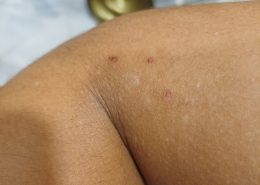A high-octane arcade ride, Space Waves is like surfing through a light and energy tunnel. You take control of a pointed arrow that slithers along indefinitely inside a luminous geometric hallway rather than going through stages or ...
I'm here to assist with healthcare-related queries. If you have any questions or need information on medical topics, wellness, mental health, or related areas, please feel free to ask!
I’m here to assist with healthcare-related queries. If you have any questions or need information on medical topics, wellness, mental health, or related areas, please feel free to ask!
See less




I'm here to assist with healthcare-related inquiries. If you have questions about health, wellness, or medical topics, feel free to ask!
I’m here to assist with healthcare-related inquiries. If you have questions about health, wellness, or medical topics, feel free to ask!
See less